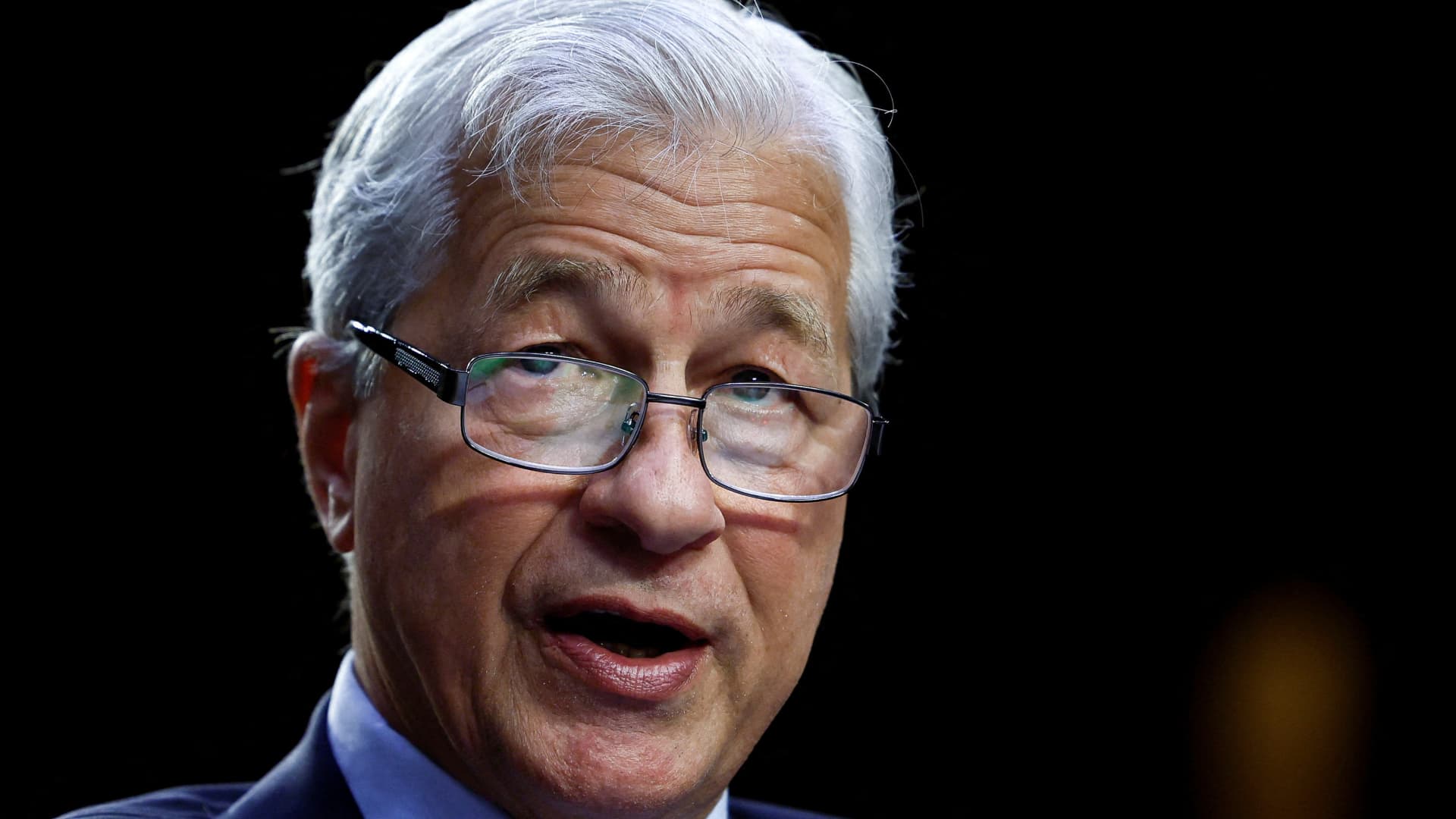
JPMorgan Chase and Company President and CEO Jamie Dimon testifies before a Senate Banking, Housing, and Urban Affairs hearing on “Annual Oversight of the Nation’s Largest Banks”, on Capitol Hill in Washington, U.S., September 22, 2022.
Evelyn Hockstein | Reuters
JPMorgan Chase & Co CEO Jamie Dimon on Wednesday called for “real engagement” between policymakers in Washington and Beijing, as Sino-U.S. relations continue to fray.
Speaking at the JPMorgan Global China Summit in Shanghai — in his first visit to China since his 2021 apology for joking that JPMorgan would outlast the Chinese Communist Party — Dimon said that security and trade disputes between the world’s two largest economies over are “resolvable.”
“You’re not going to fix these things if you are just sitting across the Pacific yelling at each other, so I’m hoping we have real engagement,” Dimon said, according to Reuters.
He advocated for a “de-risking” of the economic ties between the East and West rather than for a full-scale decoupling, as the Wall Street giant seeks to boost its presence in China.
In November 2021, Dimon expressed “regret” over remarks that JPMorgan would outlast China’s ruling party, seeking to limit damage to the bank’s growth ambitions in the country. The comments that invoked Beijing’s ire came shortly after JPMorgan won regulatory approval to become the first foreign company to establish full ownership of a securities brokerage in China.
Top U.S. and Chinese commerce officials met last week for “candid and substantive discussions” surrounding bilateral trade and commercial relations, in the first cabinet-level exchange between Washington and Beijing in months.
National security concerns also underpin a souring of relations between the two superpowers. The U.S. on Tuesday accused a Chinese fighter jet of engaging in an “unnecessarily aggressive maneuver” while intercepting a U.S. military reconnaissance aircraft in international airspace over the South China Sea.